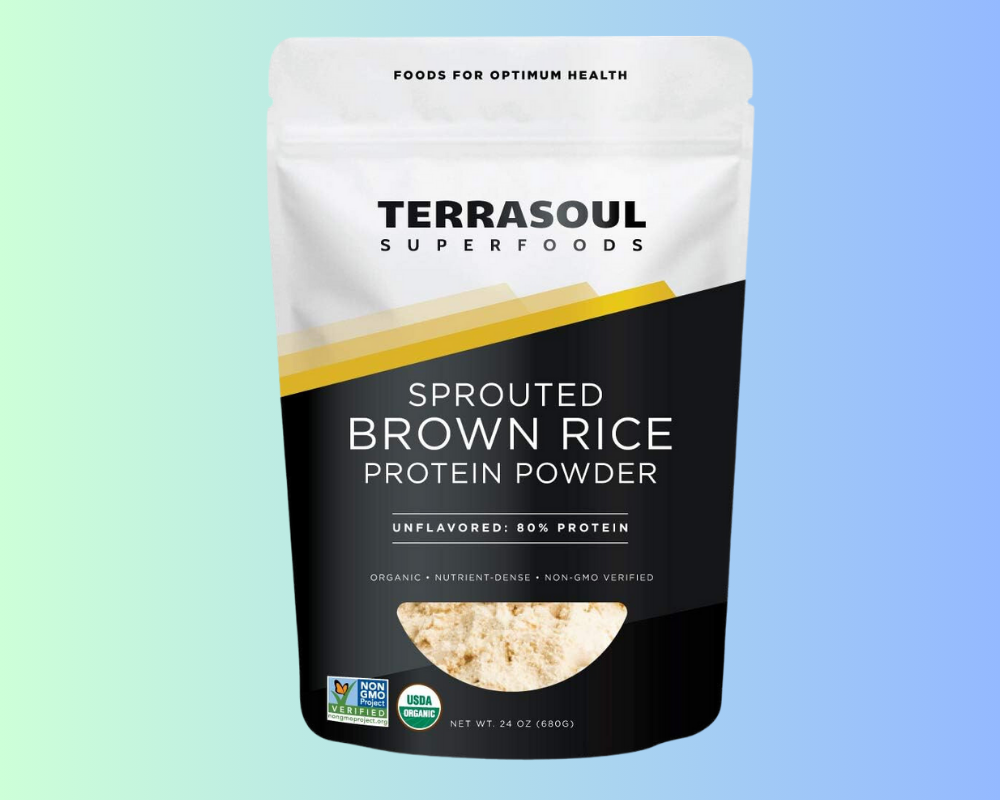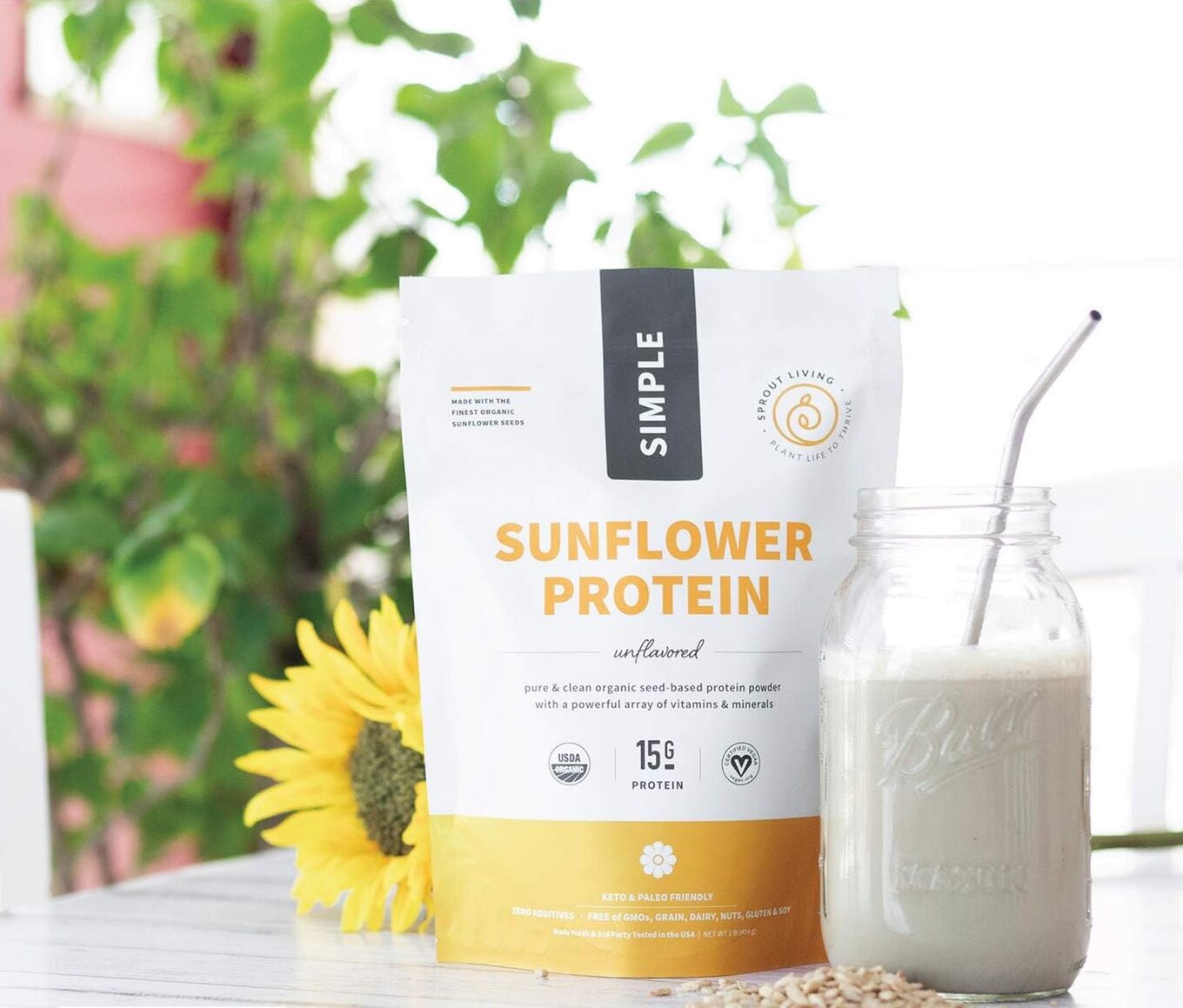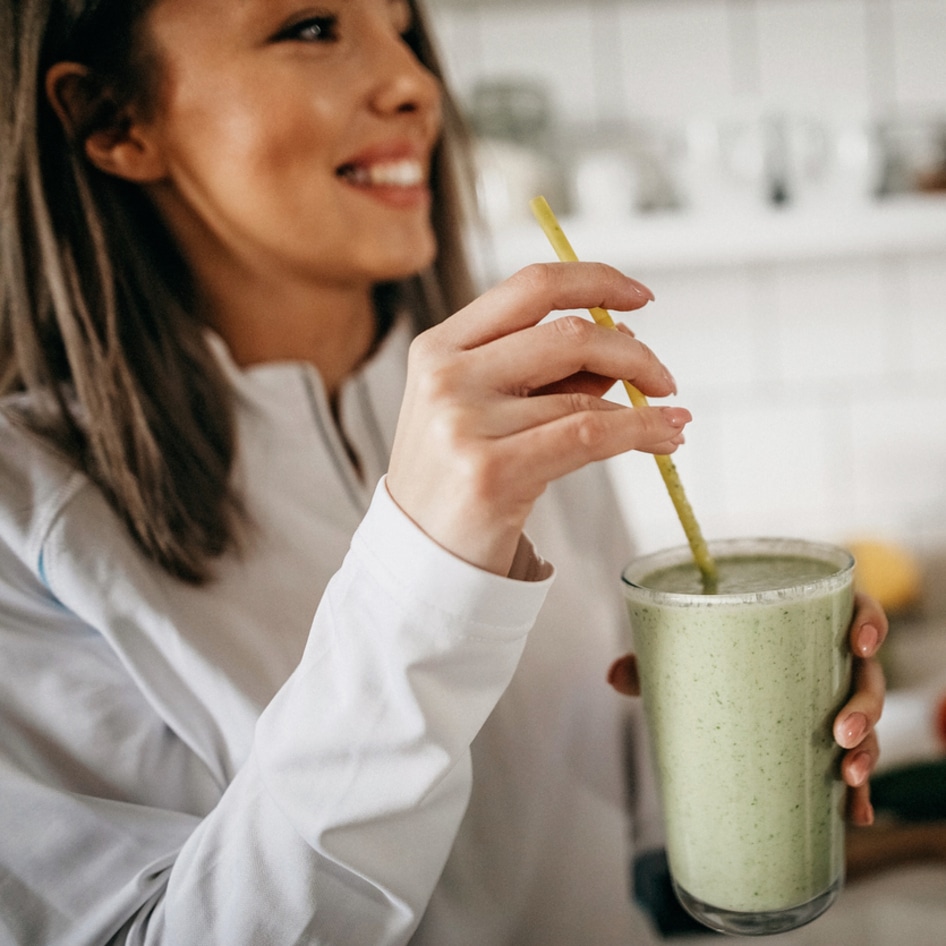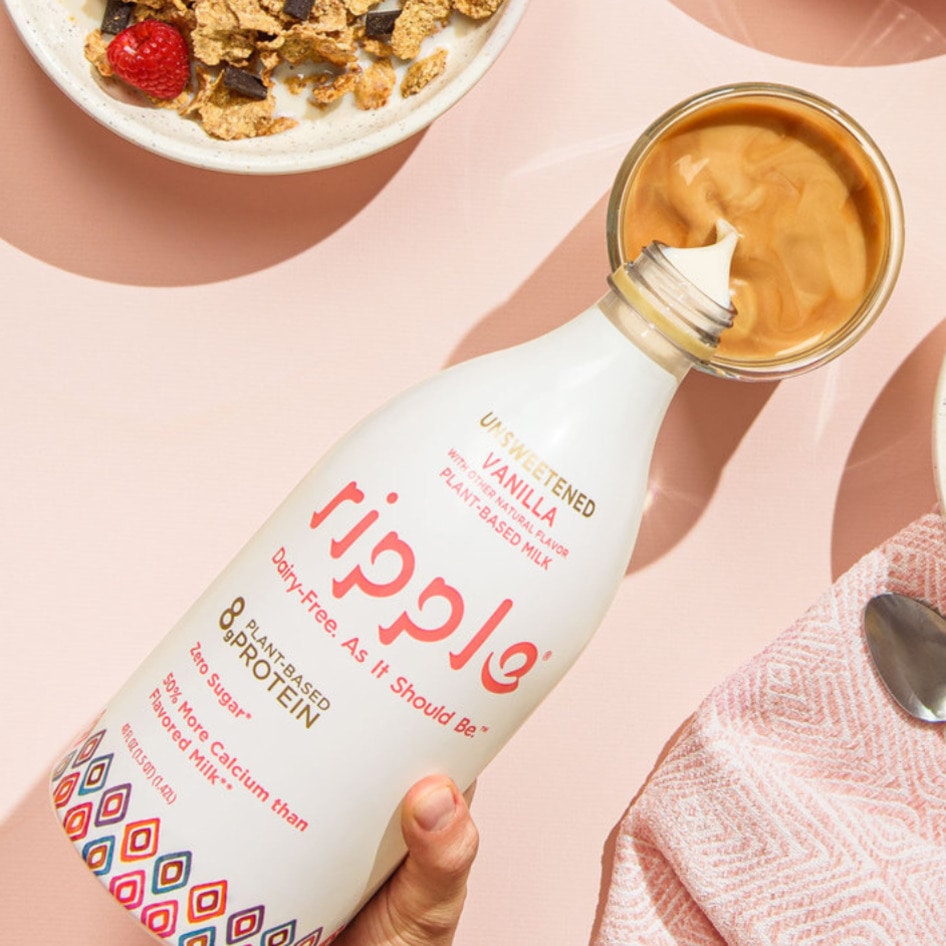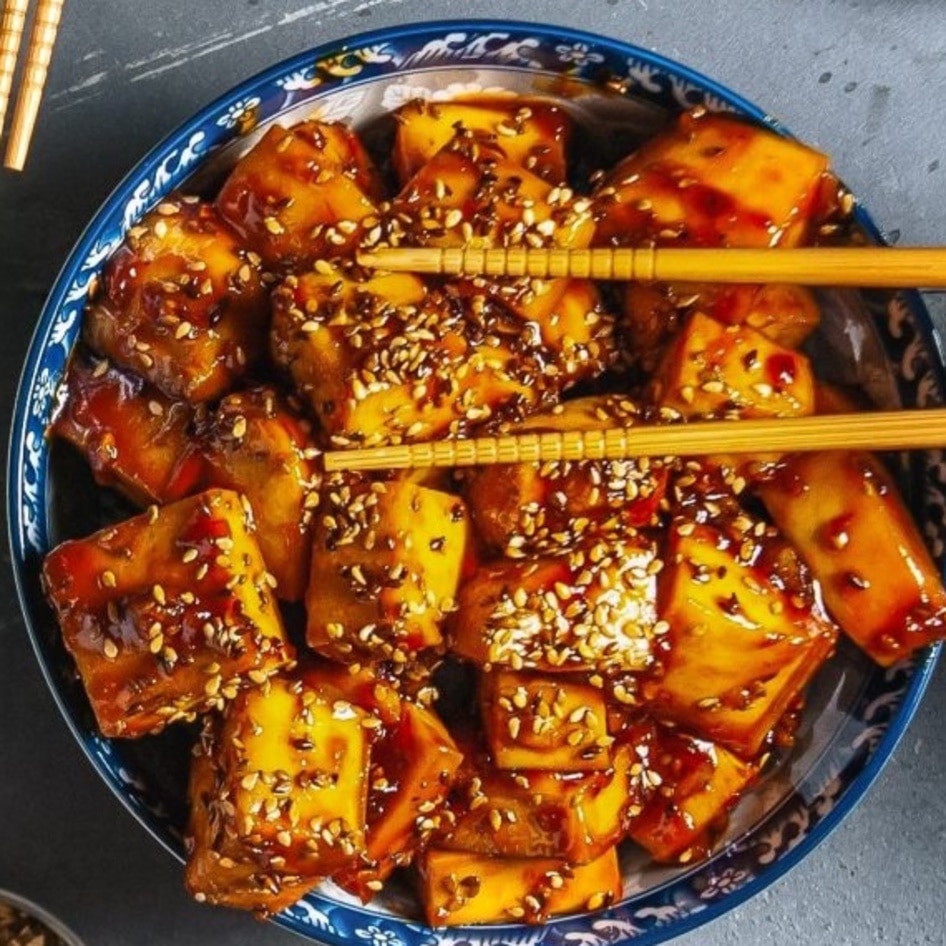The whey protein market is big—in 2021, it was valued at more than $5.3 billion. But the industry has been growing for quite some time. Thousands of years, in fact.
It all started with Polish farmers, who accidentally split goat’s milk into liquids and solids in 5500 BC, research suggests. In the years that followed, whey protein was consumed in ancient Greece, Rome, and throughout Europe during the 1700s and 1800s, mostly because it was thought to have medicinal properties.
But while whey protein may have historical significance, is it still beneficial for us to consume it today? If not, what are the alternatives? Let’s dive in.
Jump to the vegan protein powders
What is whey protein?
Whey is the product of curdled, strained milk. Basically, it’s the watery part that separates during the cheesemaking process. Any kind of milk can be used to produce whey, but usually, it comes from cow’s milk.
 Kelly Sikkema/Unsplash
Kelly Sikkema/Unsplash
Whey protein is usually sold in powder form, and because it is a complete protein, it’s often consumed by those looking to improve their athletic build or increase strength. “It is very likely to help your muscles grow,” explains nutritionist Megan Lyons to VegNews.
Is whey protein bad for you?
Whey protein is not perfect. Milk components can cause uncomfortable symptoms in many people (think of lactose intolerance, for example), and whey is no exception. These sensitivities are not allergies (although milk allergies do affect some people, too), but rather unpleasant side effects associated with dairy consumption.
“When someone with sensitivity consumes whey protein, it can cause inflammation, which can manifest in various ways depending on the person,” Lyon explains.
“Common manifestations of inflammation include bloating, digestive issues, acne or skin breakouts, and possibly even joint pain, headaches, or feelings of fatigue,” she notes. “Often, people don’t realize that these symptoms could be caused by their whey protein because they think, ‘Oh well, I’m having a healthy protein shake; it can’t be that bad.’ However, many people are reactive to whey proteins.”
Lyons says she isn’t against whey protein, but would only recommend it if a person was certain they were not reactive to it. And even then, she would still urge caution: many whey protein powders are made with harmful ingredients, she warns. “[Most] have artificial sweeteners, artificial colors, some GMO products, and other thickeners and preservatives,” Lyons explains.
But health concerns aside, it’s also important to remember that like all milk products, whey can’t be produced without animal agriculture. The latter is associated with a number of environmental issues, including 14.5 percent of global greenhouse gas emissions, deforestation, and water pollution. It also depends on the exploitation of millions of animals, who are often raised in industrialized factory farming conditions.
What are the vegan alternatives to whey protein?
If you’re looking for a protein powder, whey isn’t the only option. In fact, the plant-based protein supplement market is growing rapidly. In 2021, it was worth more than $2.5 billion, and it’s expected to expand at a compound annual growth rate of 8.8 percent over the next seven years, according to some reports.
You can find options like pea protein, hemp protein, and rice protein on the market, but Lyons recommends options that combine multiple sources, to ensure you’re getting a complete source of protein. “I almost always recommend a plant-based protein made from a combination of plants,” she said.
If you want to learn more about some of the vegan protein powders available, we’ve compiled some of the most common options below.
Vegan protein powders
1 Pea protein
Sourced from yellow peas, pea protein powder is a popular, sustainable alternative to whey protein. It contains all nine essential amino acids, but it’s low in methionine, which is why some brands choose to combine it with rice protein, too. It’s also easy for most people to digest, is unlikely to cause an allergic reaction, and it’s a source of antioxidants. For more on pea protein, read our guide here.
FIND it here
2 Hemp protein
Hemp protein is another popular vegan protein powder option. It has a nutty, grassy taste; contains healthy, unsaturated fats; and it’s minimally processed, too. Plus, it has a high fiber content, which is beneficial for gut health.
FIND it here
3 Soy protein
Soy protein, which comes from soybeans, is another good source of fiber, as well as nutrients like iron, calcium, potassium, and omega-3. It’s also a complete protein, too, just like dairy. In fact, it’s the only plant-based protein that is complete all on its own. Soy is suitable for the majority of people, however, some may be allergic or intolerant to this type of protein.
FIND it here
4 Rice protein
Rice protein powder, which is usually made with brown rice, is a nutritious option that will suit most people with food sensitivities. That said, it doesn’t contain all nine essential amino acids, so it’s not a complete protein, but it can still be a key part of a healthy diet when combined with other protein sources.
FIND it here
5 Sunflower protein
Sunflower seed protein powder, which is, of course, made with sunflower seeds, isn’t as well-known as some of the other options on this list, but it’s still a nutritious, versatile choice. It’s a good source of fiber, for example, and because of its mild flavor, it can be added to a variety of shakes and other recipes without overpowering the taste.
FIND it here
For more on vegan nutrition, read:
JUMP TO ... Latest News | Recipes | Guides | Health | Shop
Here at VegNews, we live and breathe the vegan lifestyle, and only recommend products we feel make our lives amazing. Occasionally, articles may include shopping links where we might earn a small commission. In no way does this effect the editorial integrity of VegNews.


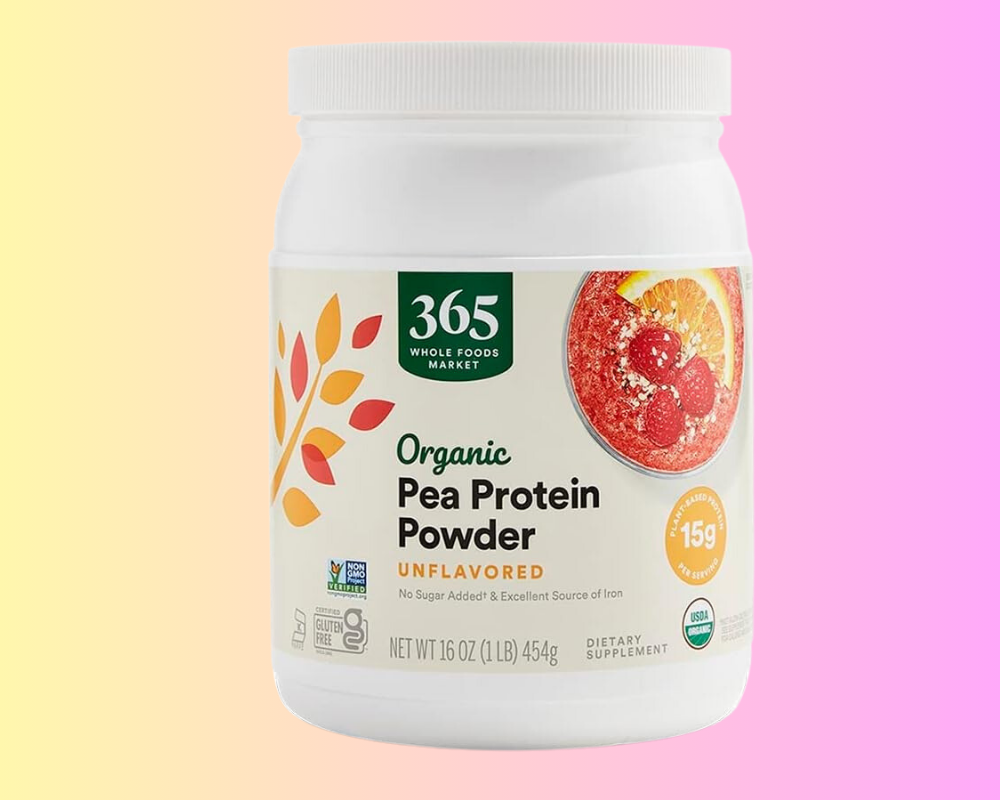
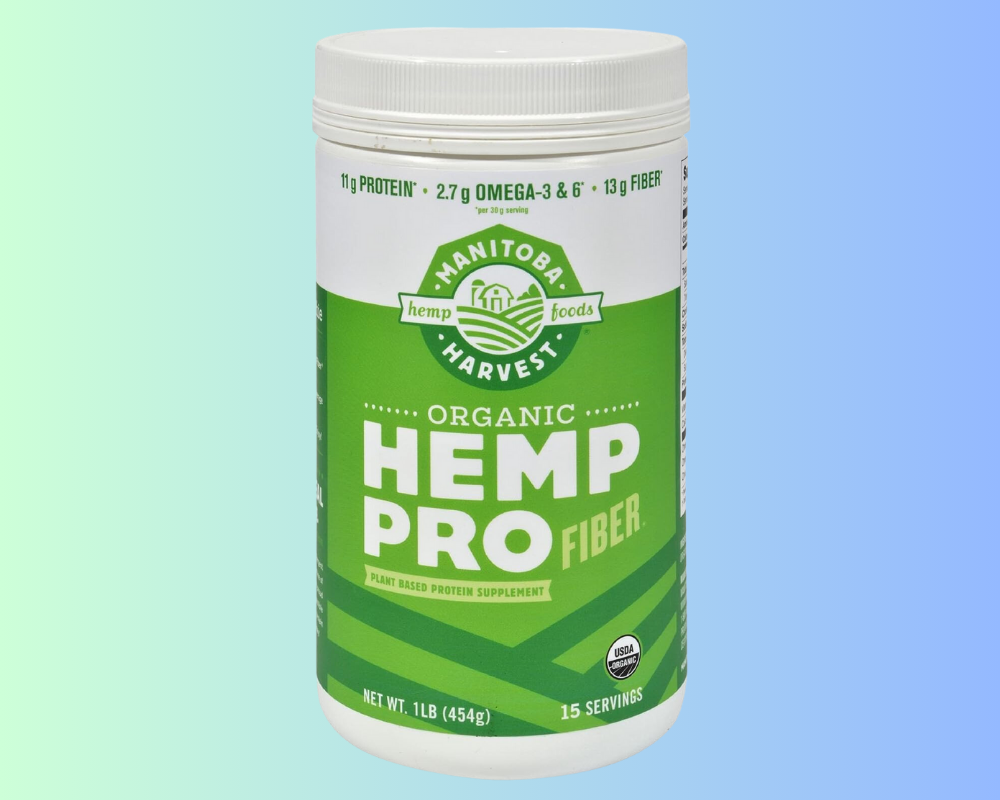
.png?sha=3eb4a5b06126850d)
